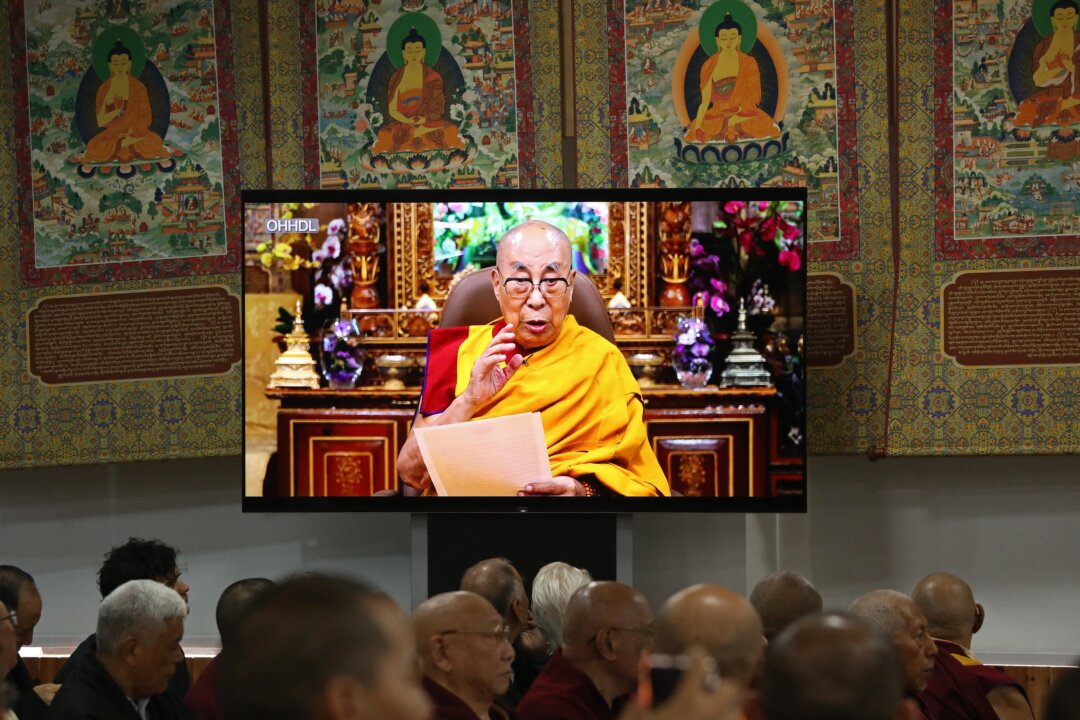Tibetan Buddhist spiritual leader Dalai Lama confirmed on Wednesday that he will reincarnate and that his Zurich-based foundation has the sole authority to identify his reincarnation, defying Beijing, which sees the Dalai Lama as a separatist.
The Nobel Peace Prize laureate made the announcement in a video message days before his 90th birthday, in Dharamshala, northern India, where he has lived in exile for the past 65 years after escaping communist rule in China.
The confirmation ended years of speculation that he could become the last Dalai Lama, ending a succession of reincarnations that lasted more than 500 years.
The Dalai Lama stressed that his Gaden Phodrang Trust “has sole authority to recognize the future reincarnation,” and “no one else has any such authority to interfere in this matter.”
In response, Chinese foreign ministry spokesperson Mao Ning said Beijing has the right to approve the Dalai Lama’s successor.
In Tibetan Buddhist traditions, reincarnations of spiritual leaders are respectfully referred to as Tulkus. Unlike an average person, Tulkus are believed to be able to choose when, where, and to whom they are reborn.
One such Tulku, the current Dalai Lama, born as Lhamo Thondup on July 6, 1935, is the 14th Dalai Lama.
According to a process he previously described, before a Tulku dies, he or she may leave predictive letters or other instructions and indications that contain clues on where to find the next reincarnation, and the successor would be identified using a range of methods, including divination and testing whether a candidate can recognize the previous Tulku’s associates and belongings.
However, the Chinese regime has interfered with the identification of another Tulku, the 11th Panchen Lama.
In 1995, days after the Dalai Lama named then-6-year-old Gedhun Choekyi Nyima as the reincarnation of the Panchen Lama, Chinese authorities abducted the boy and his family, and they have not been seen since, according to the U.S. State Department. Beijing later installed a candidate it had identified, then-5-year-old Gyaincain Norbu, whom Dharamshala does not recognize.
In 2011, the Dalai Lama announced that he may end the institution of the Dalai Lama. He said he would consult senior Tibetan monks, the Tibetan public, and other followers of Tibetan Buddhism, and announce his decision when he’s 90 years old.
The Dalai Lama said it was “particularly inappropriate for Chinese communists” to decide matters related to reincarnation, because they “explicitly reject even the idea of past and future lives, let alone the concept of reincarnate Tulkus.”
He told his followers that “no recognition or acceptance should be given to a candidate chosen for political ends by anyone, including those in the People’s Republic of China,” referring to communist China by its official name.
Commenting in 2015 on the possibility that the Dalai Lama stop reincarnating, Zhu Weiqun, then deputy minister of Beijing’s United Front Work Department and Chinese People’s Political Consultative Conference, said any process related to the reincarnation and the identification of the Dalai Lama is “illegal” unless they have Beijing’s approval, according to Chinese state media Xinhua.
“It can be said that the decision on the reincarnation of the Dalai Lama or the abolition of this lineage lies with the Chinese central government, not with anyone else, including the Dalai Lama himself,” he said.
Zhu was also the chair of the Committee for Ethnic and Religious Affairs, which is part of the National Committee of the Chinese People’s Political Consultative Conference.
In “Voice for the Voiceless,” published in March, the Dalai Lama said his reincarnation “will be born in the free world.”

